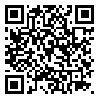Volume 28, Issue 3 (10-2022)
Back to this Issue |
Back to browse issues page
Download citation:
BibTeX | RIS | EndNote | Medlars | ProCite | Reference Manager | RefWorks
Send citation to:



BibTeX | RIS | EndNote | Medlars | ProCite | Reference Manager | RefWorks
Send citation to:
Moosavi S, Solooki M, Shamsi Gooshki E, Parsapoor A. Patient rights in the Iranian hospitals accreditation system: Explanation of challenges. Journal of Hayat 2022; 28 (3) :243-258
URL: http://hayat.tums.ac.ir/article-1-4595-en.html
URL: http://hayat.tums.ac.ir/article-1-4595-en.html
1- Dept. of Medical Surgical Nursing, School of Nursing and Midwifery, Shahid Beheshti University of Medical Sciences, Tehran, Iran
2- Dept. of Clinical Education, School of Medicine, Tehran University of Medical Sciences, Tehran, Iran
3- Dept. of Medical Ethics, School of Medicine, Tehran University of Medical Sciences, Tehran, Iran; Medical Ethics and History of Medicine Research Center, Tehran University of Medical Sciences, Tehran, Iran
4- Dept. of Medical Ethics, School of Medicine, Tehran University of Medical Sciences, Tehran, Iran; Medical Ethics and History of Medicine Research Center, Tehran University of Medical Sciences, Tehran, Iran ,aliparsa@tums.ac.ir
2- Dept. of Clinical Education, School of Medicine, Tehran University of Medical Sciences, Tehran, Iran
3- Dept. of Medical Ethics, School of Medicine, Tehran University of Medical Sciences, Tehran, Iran; Medical Ethics and History of Medicine Research Center, Tehran University of Medical Sciences, Tehran, Iran
4- Dept. of Medical Ethics, School of Medicine, Tehran University of Medical Sciences, Tehran, Iran; Medical Ethics and History of Medicine Research Center, Tehran University of Medical Sciences, Tehran, Iran ,
Abstract: (1898 Views)
Background & Aim: Accreditation of hospitals plays an important role in promoting the quality, safety and effectiveness of medical services, and increasing the efficiency of hospitals. The effectiveness of the accreditation system depends on the quality of the accreditation standards, the comprehensiveness of the accreditation method, and the quantity and quality of the accreditation appraiser. There is a need for appropriate metrics to review and evaluate the implementation of the charter of patients’ rights in the accreditation of hospitals. The aim of this study was to explain the challenges of patients’ rights in the Iranian hospitals accreditation system.
Methods & Materials: This qualitative study was conducted using a conventional content analysis approach with the participation of 13 key informants. In parallel with the interviews, with the aim of assessing the comprehensiveness, the coverage of the patients’ rights components was assessed by accreditation metrics in four sessions. Data analysis was conducted using the Graneheim and Lundman method.
Results: The challenges of the accreditation system were explained by two categories "Content deficiencies of hospitals accreditation standards", "Managerial challenges of accreditation system".
Conclusion: Accreditation has an effective and serious role in the improvement of hospital services and can be a good monitor for observing the rights of service recipients and the charter of patients’ rights. This study provides useful information on the content deficiencies of the country's accreditation standards in terms of service recipients’ rights and its implementation challenges that can be used by policy makers.
Methods & Materials: This qualitative study was conducted using a conventional content analysis approach with the participation of 13 key informants. In parallel with the interviews, with the aim of assessing the comprehensiveness, the coverage of the patients’ rights components was assessed by accreditation metrics in four sessions. Data analysis was conducted using the Graneheim and Lundman method.
Results: The challenges of the accreditation system were explained by two categories "Content deficiencies of hospitals accreditation standards", "Managerial challenges of accreditation system".
Conclusion: Accreditation has an effective and serious role in the improvement of hospital services and can be a good monitor for observing the rights of service recipients and the charter of patients’ rights. This study provides useful information on the content deficiencies of the country's accreditation standards in terms of service recipients’ rights and its implementation challenges that can be used by policy makers.
Send email to the article author
| Rights and permissions | |
 |
This work is licensed under a Creative Commons Attribution-NonCommercial 4.0 International License. |







